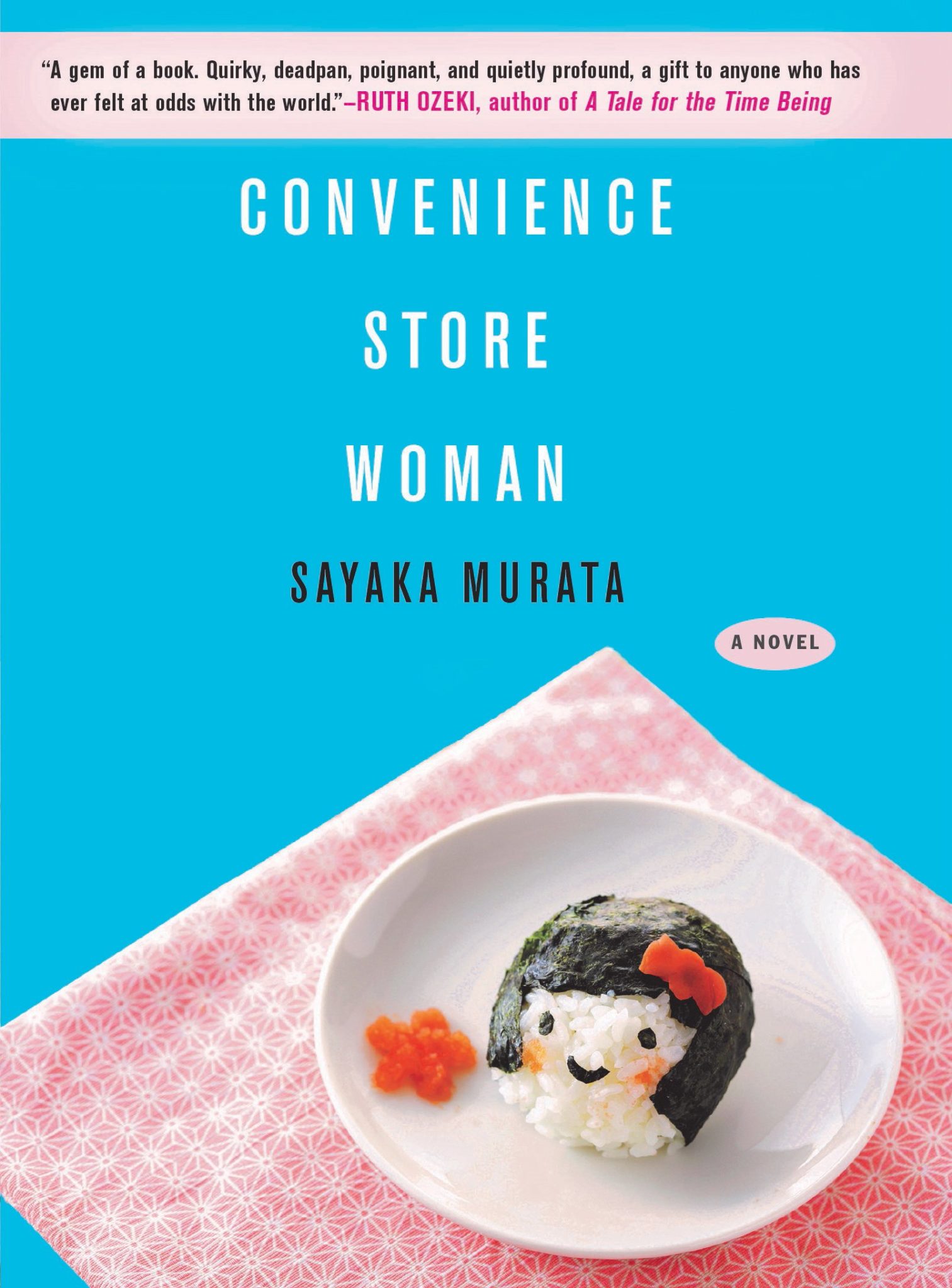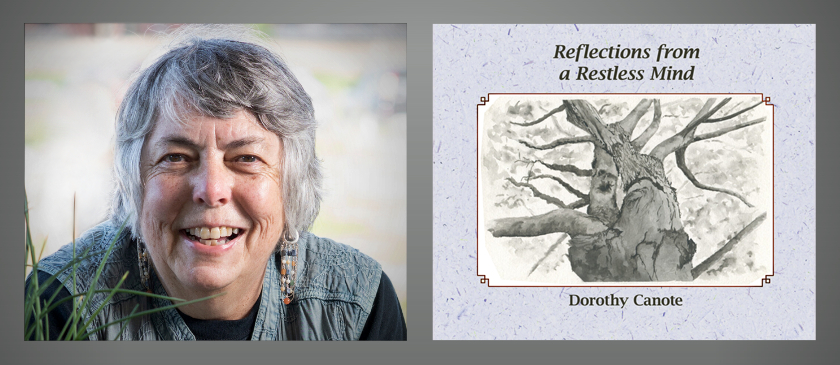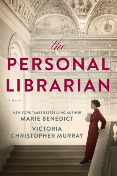If you’re looking for a way to make the world a better place, and you’re a gifted inventor, I recommend inventing an empathy machine. Imagine if more people cared about other people, and also cared about animals and plants and whether they’re going to leave behind a habitable planet. It sounds pretty cool to me, but short of some device that forces one to feel empathy, such imaginings are clearly the stuff of speculative fiction.
Of course, there is always the original empathy machine: stories. These are incredibly effective at producing empathy and enlightenment, but their drawback is that one has to read them, and reading is something most people don’t do. So, to all the gifted inventors reading this, if you can’t quite crack the empathy machine, I recommend inventing a machine that forces people to read. (Just to be clear, dear inventors, so that my words don’t haunt me: the machine forces them to read in their leisure time: not while they’re operating machinery or performing a medical procedure or precariously balancing knickknacks on the lip of a frothing deep fryer, etc.)
Continue reading “The Gentleman Recommends: Richard Powers”
 Join us for a virtual discussion of “Convenience Story Woman” by Sayaka Murata on January 6. This book brilliantly captures the atmosphere of the familiar convenience store that is so much part of life in Japan. With some laugh-out-loud moments prompted by the disconnect between the heroin Keiko’s thoughts and those of the people around her, Murata provides a sharp look at Japanese society and the pressure to conform, and the expectations placed on young women. Critics have found “Convenience Store Woman” to be a fresh, charming portrait of an unforgettable heroine. Similar books can be found here.
Join us for a virtual discussion of “Convenience Story Woman” by Sayaka Murata on January 6. This book brilliantly captures the atmosphere of the familiar convenience store that is so much part of life in Japan. With some laugh-out-loud moments prompted by the disconnect between the heroin Keiko’s thoughts and those of the people around her, Murata provides a sharp look at Japanese society and the pressure to conform, and the expectations placed on young women. Critics have found “Convenience Store Woman” to be a fresh, charming portrait of an unforgettable heroine. Similar books can be found here.
Please register to receive a Zoom link to attend this online discussion for teens and adults.
“December 7, 1941 — a date which will live in infamy…”
— President Franklin Delano Roosevelt
December 7 marks the 80th anniversary of the Japanese attack on the naval base at Pearl Harbor, Honolulu, which resulted in the deaths of 4,335 United States military personnel and 68 civilians in 1941. The attack took everyone by surprise, and the devastating loss catapulted the United States into World War II.
Relying heavily on interviews with survivors on both sides of the attack, American and Japanese, Gordon W. Prange set out to write as comprehensive and accurate a representation of events as possible in “At Dawn We Slept: The Untold Story of Pearl Harbor.” Prange spent 37 years studying and researching the events surrounding Pearl Harbor. After his death, his work was edited down to this single volume, which examines many of the factors that culminated in this turning point in history.
 In “Pearl Harbor: From Infamy to Greatness,” Craig Nelson also delves into the circumstances and events in Japan that ultimately contributed to the surprise attack on Pearl Harbor. From there, he moves on to the events immediately leading up to the attack and firsthand accounts of sailors aboard the ships. Finally, he examines the legacy of the attack and its effects on the relationship between Japan and the United States.
In “Pearl Harbor: From Infamy to Greatness,” Craig Nelson also delves into the circumstances and events in Japan that ultimately contributed to the surprise attack on Pearl Harbor. From there, he moves on to the events immediately leading up to the attack and firsthand accounts of sailors aboard the ships. Finally, he examines the legacy of the attack and its effects on the relationship between Japan and the United States.
Continue reading “Pearl Harbor: An Event That Continues to Live in Infamy”
2021 has been eventful for me. I palled around with a well-known children’s author, pondered universal truths with a Pulitzer-winning poet, and survived the approach of doomsday as a witch and a technology nerd gave it their all to save the world. I’m talking about my year in reading, of course. I experienced all of these things in the pages of books. Goodreads tells me I’ve finished 36 titles so far this year. I’ve chosen four from arbitrary categories to share here. Continue reading “My Year in Reading”

Dorothy Canote is a Mid-Missouri author whose latest book is “Reflections From A Restless Mind.” The book is a series of illustrated essays sharing her love of science, travel, history and nature. Her essay subjects range the full gamut — reminiscing about her hometown of Avalon, MO, traveling to various places in the country of Mexico, exploring caves in the Ozarks, and more. The book is a followup to her first collection of illustrated essays, “Paintings and Musings From the Heartland.” Canote is a retired science teacher who also sold produce, herbs and flowers for 10 years at the Columbia Farmers Market. She was kind enough to take the time to be interviewed via email. Continue reading “Q&A With Dorothy Canote, Author of “Reflections From a Restless Mind””
What comes to mind when you think of home cooking? Do you think of traditional American meals like grilled cheese sandwiches, mashed potatoes, pot roast, etc.? As I was thinking up books to highlight for the topic of home cooking, it occurred to me that it could mean something very different depending on which home you grew up in. After all, the U.S. is a melting pot of people and cultures. Let’s explore some international home cooking! Continue reading “International Home Cooking”
 Another of Marie Benedict’s fascinating historical fiction writings, “The Personal Librarian” describes Belle da Costa Greene, a light-skinned black woman who “passes” in the early twentieth century. Her father, the first black graduate of Howard University, fought for civil rights. Her mother chose to provide a better life for her children by becoming a part of the white privileged world.
Another of Marie Benedict’s fascinating historical fiction writings, “The Personal Librarian” describes Belle da Costa Greene, a light-skinned black woman who “passes” in the early twentieth century. Her father, the first black graduate of Howard University, fought for civil rights. Her mother chose to provide a better life for her children by becoming a part of the white privileged world.
Belle became librarian at Princeton where she was encouraged to apply for a position as librarian for J.P. Morgan to build his library into a world-renowned collection of ancient books and art. This girl, still in her twenties, managed to develop the skills needed to acquire these treasures, all the while maintaining her secret identity. The description of her ability to compete with male European collectors was fascinating, as was her relationship with her employer as he became more and more dependent on her and her decisions.
Perhaps the most interesting and important part of Belle’s story is the passing for white in a world where constant attention was essential. Every word had to be considered; every life choice had consequences. She knew of the Ku Klux Klan, the lynchings and the privileges now bestowed upon her and her family. The authors give us a sad and believable account of Belle’s life.
Three words that describe this book: important today, fascinating, moving
You might want to pick this book up if: You enjoy historical fiction and are interested in women’s rights, racial injustices, and the development of wealth in early twentieth century United States.
-Janet
This reader review was submitted as part of Adult Summer Reading 2021. We will continue to share these throughout the year.
Hey there, comic fans! While we’re on a bit of a hot streak, why don’t we go ahead and do our first ever part two for an entry? For this segment, we’re going to go over five more “obscure” characters/teams that you might find interesting. I use quotation marks because, of course, there’s going to be someone out there who’s a graphic novel expert and thinks these entries are common knowledge. Well, good for them! For the rest of you, however, I hope these give you some new reading material. As always, some mature content might be involved. Let’s go! Continue reading “Quintessential Comics: Dive into Obscurity II”
 Through intricately interwoven alternating perspectives, Jennifer Latham’s lightning-paced page-turner, “Dreamland Burning,” brings the Tulsa Race Massacre of 1921 to blazing life and raises important questions about the complex state of U.S. race relations — both yesterday and today. For more books about this and other related historical events, check out this list.
Through intricately interwoven alternating perspectives, Jennifer Latham’s lightning-paced page-turner, “Dreamland Burning,” brings the Tulsa Race Massacre of 1921 to blazing life and raises important questions about the complex state of U.S. race relations — both yesterday and today. For more books about this and other related historical events, check out this list.
Register for a Zoom link to attend this online discussion for teens and adults on Thursday, December 2 from 12-1 p.m.
One of my favorite things about learning history is that it adds new dimension to the things I already enjoy, and this is especially true for food history. For example, I have always loved pumpkin pie, but it hits me differently knowing that I’m eating Sri Lankan tree bark mixed with a spicy root that can grow just about anywhere and was as common in medieval Europe as pepper. These flavors are complemented by an aromatic flower bud from an Indonesian evergreen and a seed whose origins were so jealously guarded that it was dipped in lime juice before it was sold or exported so no one could grow their own. (Those are cinnamon, ginger, cloves and nutmeg, respectively.) Every ingredient and every recipe we enjoy is born of a long journey, both geographical and historical, and  there is an absolute feast of books that tell those stories. Continue reading “Literary Links: Food History”
there is an absolute feast of books that tell those stories. Continue reading “Literary Links: Food History”



